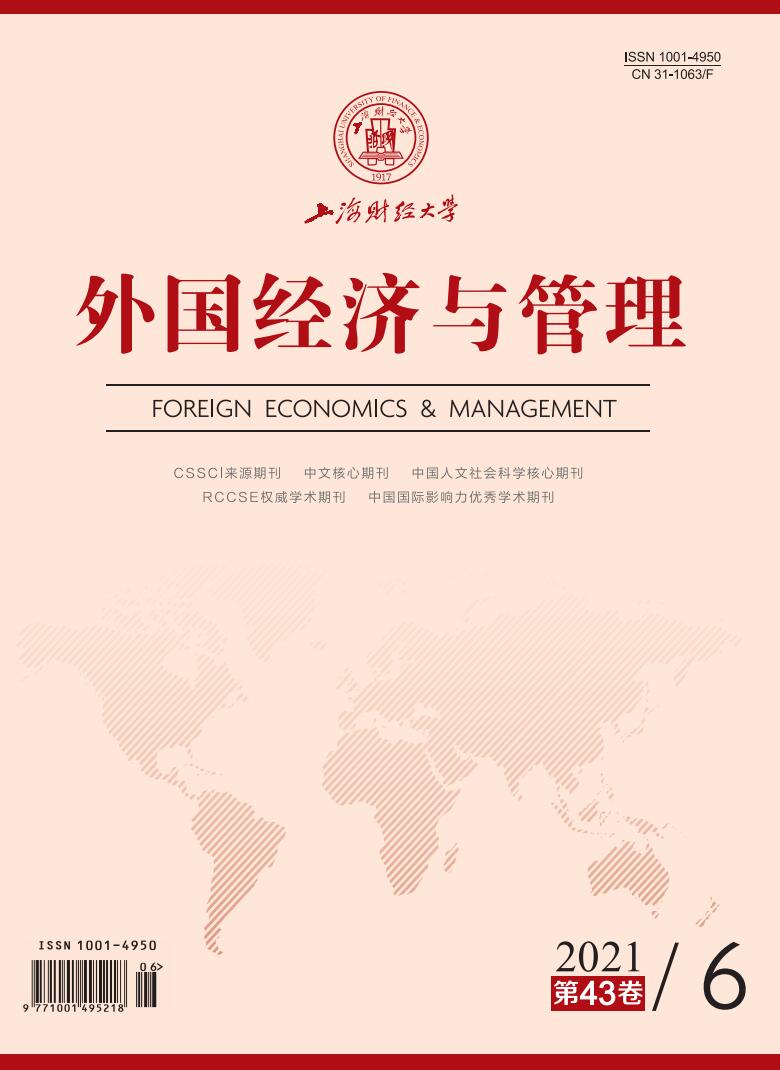“煮熟的鸭子飞走了”通常被用来形容并购失败事件,那么企业是否会为了避免“煮熟的鸭子飞走”而进行溢价支付?本文利用CEO家族属性作为伪禀赋效应个体异质性的代理变量,基于2003—2018年中国上市企业1321个溢价并购事件,采用两阶段最小二乘法(IV-2SLS)进行回归估计,研究发现:与职业经理人担任CEO的企业相比,家族成员担任CEO的企业支付的并购溢价更高,即CEO伪禀赋效应在并购中发挥了重要作用;竞争者越多、并购相对重要性越高,或者并购持续时间越长,都会进一步提高家族CEO支付的并购溢价水平。本研究从个体行为理论视角出发,为并购溢价的成因提供了一个新的理论解释,丰富并深化了并购定价决策的有关研究,同时拓展了家族企业的研究边界。
避免“煮熟的鸭子飞走”:CEO家族属性、伪禀赋效应与并购溢价
摘要
参考文献
2 傅超, 杨曾, 傅代国. “同伴效应”影响了企业的并购商誉吗?——基于我国创业板高溢价并购的经验证据[J]. 中国软科学,2015, (11): 94-108. DOI:10.3969/j.issn.1002-9753.2015.11.010
4 刘白璐, 吕长江. 基于长期价值导向的并购行为研究——以我国家族企业为证据[J]. 会计研究,2018, (6): 47-53. DOI:10.3969/j.issn.1003-2886.2018.06.007
6 潘爱玲, 刘文楷, 王雪. 管理者过度自信、债务容量与并购溢价[J]. 南开管理评论,2018, 21(3): 35-45. DOI:10.3969/j.issn.1008-3448.2018.03.005
8 于洪鉴, 陈艳, 陈邑早. CEO自恋与并购非公开环节行为决策的实验研究[J]. 管理科学,2019, 32(5): 102-112. DOI:10.3969/j.issn.1008-7540.2019.05.021
12 Anderson R C, Mansi S A, Reeb D M. Founding family ownership and the agency cost of debt[J]. Journal of Financial Economics,2003, 68(2): 263-285. DOI:10.1016/S0304-405X(03)00067-9
13 Ariely D, Simonson I. Buying, bidding, playing, or competing? Value assessment and decision dynamics in online auctions[J]. Journal of Consumer Psychology,2003, 13(1-2): 113-123. DOI:10.1207/S15327663JCP13-1&2_10
14 Brosnan S F, Jones O D, Gardner M, et al. Evolution and the expression of biases: Situational value changes the endowment effect in chimpanzees[J]. Evolution and Human Behavior,2012, 33(4): 378-386. DOI:10.1016/j.evolhumbehav.2011.11.009
15 Chatterjee P, Irmak C, Rose R L. The endowment effect as self-enhancement in response to threat[J]. Journal of Consumer Research,2013, 40(3): 460-476. DOI:10.1086/671344
16 Devers C E, Wuorinen S, McNamara G, et al. An integrative review of the emerging behavioral acquisition literature: Charting the next decade of research[J]. Academy of Management Annals,2020, 14(2): 869-907. DOI:10.5465/annals.2018.0031
17 Eckbo B E. Bidding strategies and takeover premiums: A review[J]. Journal of Corporate Finance,2009, 15(1): 149-178. DOI:10.1016/j.jcorpfin.2008.09.016
18 Fralich R, Papadopoulos A. The financial crisis, acquisition premiums and the moderating effect of CEO power[J]. Long Range Planning,2018, 51(2): 204-218. DOI:10.1016/j.lrp.2017.08.004
19 Gómez-Mejía L R, Haynes K T, Núñez-Nickel M, et al. Socioemotional wealth and business risks in family-controlled firms: Evidence from Spanish olive oil mills[J]. Administrative Science Quarterly,2007, 52(1): 106-137. DOI:10.2189/asqu.52.1.106
20 Gomez-Mejia L R, Patel P C, Zellweger T M. In the horns of the dilemma: Socioemotional wealth, financial wealth, and acquisitions in family firms[J]. Journal of Management,2018, 44(4): 1369-1397. DOI:10.1177/0149206315614375
21 Hayward M L A, Hambrick D C. Explaining the premiums paid for large acquisitions: Evidence of CEO hubris[J]. Administrative Science Quarterly,1997, 42(1): 103-127. DOI:10.2307/2393810
22 Heyman J E, Orhun Y, Ariely D. Auction fever: The effect of opponents and quasi-endowment on product valuations[J]. Journal of Interactive Marketing,2004, 18(4): 7-21. DOI:10.1002/dir.20020
23 Kim H, Hoskisson R E, Zyung J D. Socioemotional favoritism: Evidence from foreign divestitures in family multinationals[J]. Organization Studies,2019, 40(6): 917-940. DOI:10.1177/0170840619838955
25 Shu S B, Peck J. Psychological ownership and affective reaction: Emotional attachment process variables and the endowment effect[J]. Journal of Consumer Psychology,2011, 21(4): 439-452. DOI:10.1016/j.jcps.2011.01.002
26 Thaler R H. Anomalies: The winner's curse[J]. Journal of Economic Perspectives,1988, 2(1): 191-202. DOI:10.1257/jep.2.1.191
28 Tversky A, Kahneman D. Loss aversion in riskless choice: A reference-dependent model[J]. The Quarterly Journal of Economics,1991, 106(4): 1039-1061. DOI:10.2307/2937956
29 Villalonga B, Amit R. How do family ownership, control and management affect firm value?[J]. Journal of Financial Economics,2006, 80(2): 385-417. DOI:10.1016/j.jfineco.2004.12.005
引用本文
王晓颖, 贾银华, 马真真. 避免“煮熟的鸭子飞走”:CEO家族属性、伪禀赋效应与并购溢价[J]. 外国经济与管理, 2021, 43(6): 74-89.
导出参考文献,格式为:





 12731
12731  7639
7639

